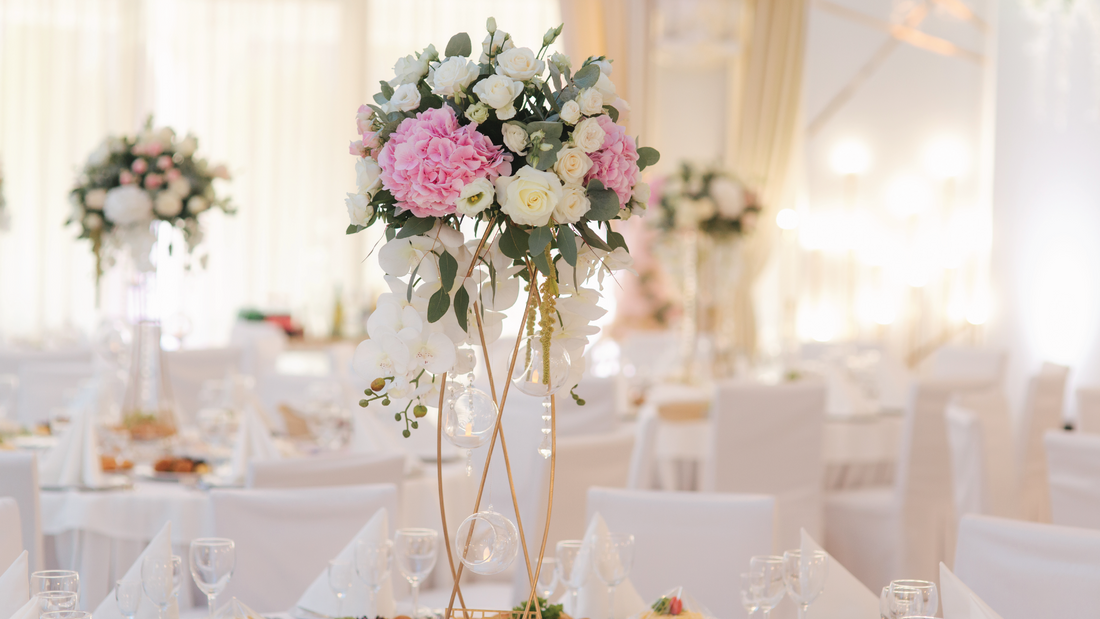
Tips for Planning a Stress-Free Islamic Wedding: Your Complete Guide
Share
Weddings are a beautiful celebration of love, family, and faith. For Muslim couples, planning a Nikah and Walima is not only about creating an unforgettable event but also about honoring Islamic traditions and values. However, organizing a wedding that balances spirituality, culture, and modern expectations can sometimes feel overwhelming.
This extensive guide will walk you through every aspect of planning a stress-free Islamic wedding — from the earliest preparations to the final celebrations. Whether you are the bride, groom, family member, or event planner, these tips and insights will help ensure your day is joyful, smooth, and filled with blessings.
Table of Contents
- Understanding the Significance of an Islamic Wedding
- Early Planning and Setting Intentions
- Budgeting Wisely Without Compromise
- Choosing the Right Venue: Halal and Family-Friendly
- Guest List Considerations and Invitations
- Selecting Attire: Modest, Elegant, and Comfortable
- Incorporating Islamic Rituals and Traditions
- Halal Catering: Feeding the Soul and the Guests
- Entertainment and Music: Respecting Shariah Guidelines
- Wedding Decor and Ambiance: Beauty with Purpose
- Managing Gender Segregation with Grace
- Hiring Trusted Vendors and Coordinators
- The Importance of Prayer Spaces
- Time Management and Scheduling the Day
- Self-Care for the Bride and Groom
- Handling Unexpected Issues Calmly
- Post-Wedding Etiquette and Celebrations
- Final Words: Keeping the Day Faith-Centered and Joyful
1. Understanding the Significance of an Islamic Wedding
Before diving into the logistics, it’s important to remember the heart of the occasion — the sacred contract between two people under Allah’s guidance. The Nikah is a solemn act of worship and commitment. It is not merely a social event but a foundational step in building a family grounded in Islamic values.
With this perspective, every decision made during planning should honor this spiritual significance. This mindset will help prioritize what truly matters, reducing unnecessary stress caused by societal pressures or trends.
2. Early Planning and Setting Intentions
Set Clear Intentions (Niyyah)
The Prophet Muhammad (peace be upon him) emphasized the importance of sincere intentions. Before starting your wedding preparations, set the intention that your wedding will be a means of pleasing Allah and fostering a righteous household.
Start Early
Islamic weddings often involve many components, so giving yourself ample time (6 months to 1 year) to plan reduces last-minute rush and anxiety.
Create a Planning Checklist
List all major components — venue, guest list, attire, catering, invitations, and religious requirements. Break them into monthly goals to stay organized.

3. Budgeting Wisely Without Compromise
Weddings can be costly, but Islamic teachings encourage moderation and discourage extravagance.
- Set a Realistic Budget: Decide what you can afford and stick to it.
- Prioritize Essentials: Focus spending on elements that matter most, such as halal food, a proper venue, and modest attire.
- Avoid Debt: Do not overspend to impress others; a simple, beautiful wedding can be just as memorable.
- Consider Group Contributions: Some families pool funds or receive gifts to help with costs.
- Track Expenses: Use budgeting apps or spreadsheets to monitor spending.
4. Choosing the Right Venue: Halal and Family-Friendly
Finding a venue that aligns with Islamic principles is crucial.
- Halal Environment: Look for spaces with no alcohol served and halal catering options.
- Prayer Facilities: On-site or nearby prayer rooms are a must.
- Gender Segregation Options: Flexible layouts for separate spaces if needed.
- Family-Friendly Atmosphere: A place where children and elders feel comfortable.
- Accessibility: Consider parking, transportation, and accommodations for elderly guests.
Tip: Venues like Royal Venue in Cape Town specialize in Islamic events, making your planning easier and more compliant.

5. Guest List Considerations and Invitations
- Keep It Meaningful: Invite close family and friends to avoid overwhelming crowds.
- Separate Invitations: If gender segregation is practiced, issue clear invitations for designated areas.
- Respect Privacy: Be mindful of community customs regarding who attends Nikah versus Walima.
- Digital Invites: Save costs and eco-friendly options through email or social media invites.
6. Selecting Attire: Modest, Elegant, and Comfortable
Wedding clothes should reflect modesty and dignity.
- Bride’s Attire: Consider styles that cover appropriately, using luxurious but modest fabrics.
- Groom’s Attire: Traditional or modern styles that maintain Islamic decorum.
- Colors and Themes: Coordinate with the overall wedding palette while respecting modesty.
- Comfort: Weddings can be long; choose breathable fabrics and practical shoes.
7. Incorporating Islamic Rituals and Traditions
- Nikah Ceremony: Performed by a qualified Imam, the Nikah is the core religious act.
- Khutbah (Sermon): Optional but adds spiritual meaning.
- Walima: The marriage banquet, typically held after the Nikah.
- Dua and Quran Recitation: Adds blessing and solemnity to the day.
- Henna Night: A traditional event celebrated modestly and joyfully.
8. Halal Catering: Feeding the Soul and the Guests
- Halal Certification: Confirm all food and beverages meet halal standards.
- Menu Variety: Include dishes that cater to different tastes and dietary restrictions.
- Presentation: Beautiful plating enhances guest experience.
- Timing: Serve food promptly, respecting prayer times.

9. Entertainment and Music: Respecting Shariah Guidelines
- Avoid Prohibited Music: Choose nasheeds, Quranic recitations, or live spoken word.
- Separate Entertainment Spaces: If gender segregation applies.
- Light Celebrations: Focus on joy without overindulgence.
10. Wedding Decor and Ambiance: Beauty with Purpose
- Subtle Elegance: Use colors and decorations that promote a warm, inviting atmosphere.
- Islamic Calligraphy: Incorporate verses or meaningful quotes.
- Lighting: Soft, flattering lighting enhances mood.
- Floral Arrangements: Choose fresh, fragrant flowers.
11. Managing Gender Segregation with Grace
- Clear Signage: Help guests find their designated spaces easily.
- Separate Entrances or Rooms: If possible.
- Communication: Inform guests beforehand about arrangements.
- Comfort: Ensure both sections are equally decorated and equipped.
12. Hiring Trusted Vendors and Coordinators
- Check References: Ensure vendors understand Islamic requirements.
- Contracts: Clearly state expectations about halal standards.
- Wedding Coordinator: A coordinator familiar with Islamic weddings can ease your workload.
13. The Importance of Prayer Spaces
- Accessible and Clean: Guests should find prayer spaces easily.
- Separate Facilities: For men and women if possible.
- Prayer Timings: Schedule breaks for prayers during the event.
14. Time Management and Scheduling the Day
- Create a Detailed Timeline: Include ceremonies, meals, prayers, and celebrations.
- Allow Flexibility: Build in buffer time to reduce stress.
- Communicate Schedule: Share with vendors, family, and guests.
15. Self-Care for the Bride and Groom
- Rest: Prioritize sleep, especially in the week before.
- Healthy Eating: Maintain a balanced diet.
- Stay Hydrated: Drink plenty of water.
- Mental Preparation: Engage in spiritual practices, such as dua and reflection.
- Delegate: Trust your coordinator and family to handle logistics.
16. Handling Unexpected Issues Calmly
- Stay Patient: Unexpected challenges happen; maintain calm and remember the bigger picture.
- Backup Plans: Have alternatives for weather, vendors, or technical issues.
- Support System: Lean on trusted friends or family for help.

17. Post-Wedding Etiquette and Celebrations
- Thank Guests: Send thank-you notes or messages.
- Share Memories: Photos and videos can be shared in line with privacy.
- Community Involvement: Engage in community activities to celebrate your union.
- Continued Prayers: Keep your marriage blessed through dua and good deeds.
18. Final Words: Keeping the Day Faith-Centered and Joyful
Your wedding day is a beautiful beginning grounded in love and faith. By planning thoughtfully, honoring Islamic principles, and focusing on the joy of union rather than extravagance, your celebration will be memorable for all the right reasons.
May Allah bless your marriage and grant you happiness, barakah, and success together.
